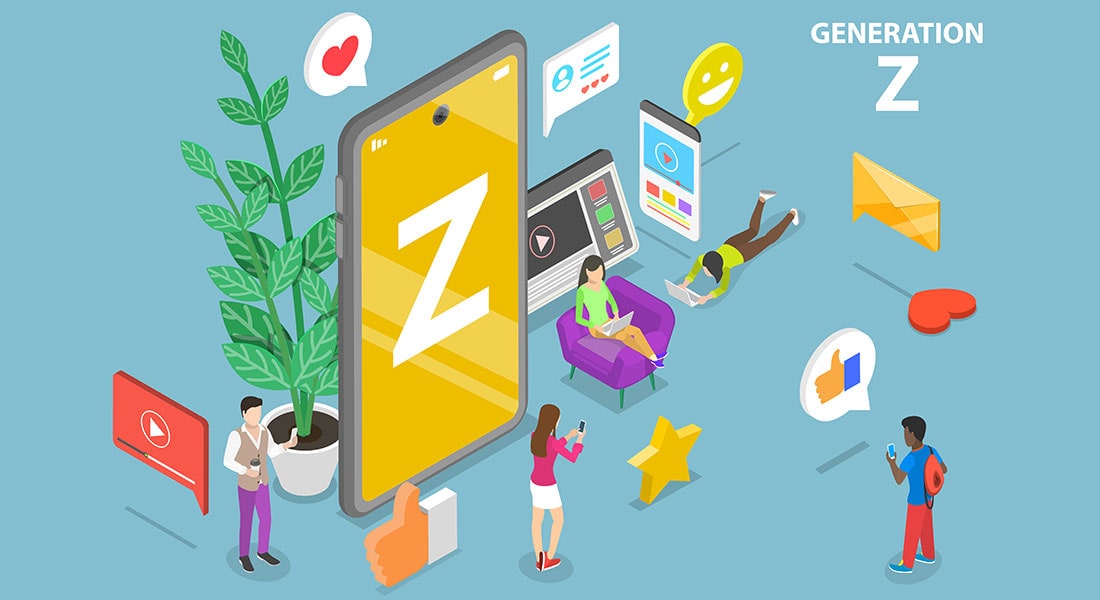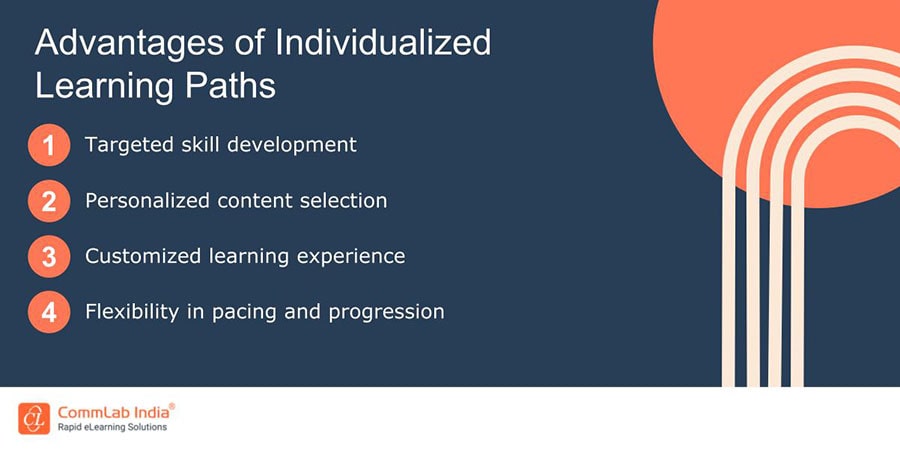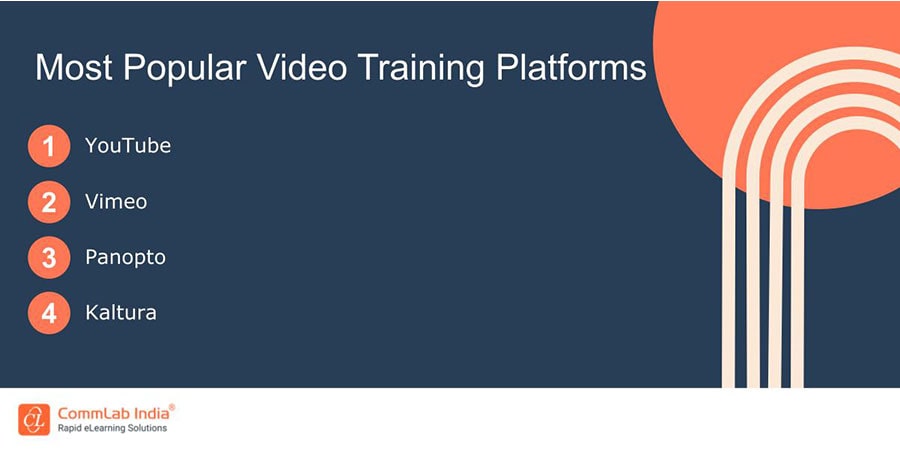Navigating Gen Z Training: Challenges and Transformative Trends
Explore challenges & trends in training Generation Z. Discover how to engage, adapt, and innovate in learning for the digital-native generation.

Training Generation Z (Gen Z) presents a distinctive set of challenges and trends in workforce development. Born into a digital world and shaped by a unique set of socio-cultural influences, Gen Z, comprising individuals born roughly between the mid-1990s and early 2010s, brings a distinct set of characteristics and preferences to the table. This generation's short attention spans, digital fluency, and demand for personalization require innovative approaches. In this blog, we will uncover the key challenges and transformative trends shaping the training of Gen Z.
Trying to Train your Gen Z Workforce?
Here are a few challenges you might face -
- Short attention spans
- Digital overload and distractions
- Personalization expectations
- Inclusivity and diversity
Read on to explore a few popular trends to follow while training Gen Z.
Challenges Faced While Training Gen Z Employees
1. Short Attention Spans
Gen Z's upbringing in a fast-paced, digital world has cultivated notably shorter attention spans. Traditional, lengthy training materials often struggle to maintain their engagement. To address this challenge, training programs should adopt a microlearning approach. This involves breaking down content into bite-sized, easily digestible segments. These short, focused lessons align with Gen Z's attention spans, allowing them to absorb information more effectively. Microlearning can be delivered through videos, infographics, quizzes, or interactive modules, providing engaging and concise learning experiences.
2. Digital Overload and Distractions
Gen Z is immersed in a world of constant digital stimuli, from social media notifications to online entertainment. This continuous exposure can lead to digital overload, making it challenging for them to concentrate on learning content. To mitigate distractions, training programs should emphasize digital detox strategies and time management skills. Encouraging offline learning or setting designated learning periods can help Gen Z learners regain focus and engage more effectively with their training materials.
→ Download eBook Now: eLearning Trends 2023
3. Personalization Expectations
Gen Z values individuality and expects personalized learning experiences. Cookie-cutter, one-size-fits-all training programs may not resonate with this generation. Personalization can be achieved by offering learners choices in their training paths, allowing them to select topics or modules based on their interests and skill gaps. AI-powered systems can also analyze learner behavior and adapt content, providing a more tailored learning journey. This personal touch enhances engagement and helps Gen Z learners feel that their unique needs are acknowledged.

4. Preference for Visual and Interactive Content
Gen Z's affinity for visual and interactive content is rooted in their digital upbringing. Text-heavy training materials are less effective in capturing their attention and interest. Training programs should incorporate multimedia elements such as videos, infographics, animations, and interactive simulations. These dynamic formats not only make learning more engaging but also facilitate better retention of information. Visual and interactive content can convey complex concepts in a more digestible and memorable way.
5. Desire for Peer Collaboration
Gen Z is highly social and thrives on collaboration. Training programs that promote solitary learning may not resonate with this generation. To address this challenge, educators should include collaborative components in their training materials. Group projects, discussions, and peer-to-peer learning activities can foster engagement and create a sense of community among Gen Z learners. These interactions allow them to share ideas, learn from their peers, and develop essential teamwork and communication skills.
6. Inclusivity and Diversity
Gen Z is acutely aware of social issues, including diversity and inclusion. They expect training materials and programs to reflect these values. To meet this challenge, organizations must ensure that their training content and approaches are diverse and inclusive. This involves addressing topics related to diversity, equity, and inclusion, as well as promoting cultural competence among learners. Training programs should avoid stereotypes and biases, ensuring that all learners feel represented and valued. Failure to do so can lead to disengagement and hinder the effectiveness of the training.
Trends to Follow While Training Gen Z Employees
1. Microlearning
Microlearning is a trend gaining significant traction in training, especially for Gen Z. It involves breaking down learning materials into small, digestible units, typically lasting no more than a few minutes. Gen Z's shorter attention spans make microlearning an ideal approach. These bite-sized lessons are easily consumed and fit well with busy schedules. Microlearning modules can be delivered through various media, including videos, infographics, quizzes, and mobile apps. This trend promotes efficient and focused learning, allowing Gen Z to acquire knowledge quickly and effectively.
2. Gamification
Gamification is the integration of game elements and mechanics into non-game contexts, such as training and education. For Gen Z, who grew up with video games, gamified training is highly engaging. Training programs can incorporate features like leaderboards, badges, points, and rewards to create a competitive and enjoyable learning experience. Gamification not only maintains Gen Z's interest but also fosters a sense of accomplishment, motivation, and progression in their training journeys.
3. Mobile Learning
Gen Z is known for their attachment to smartphones and tablets, making mobile learning a vital trend. Training programs must be mobile-friendly and accessible across various devices. Mobile learning offers flexibility, allowing Gen Z to access training materials anytime, anywhere. This trend includes mobile apps, responsive web design, and even chatbots for on-the-go support. Mobile learning aligns with Gen Z's tech-savvy lifestyle and enables continuous learning, even outside of formal corporate settings.
4. Video-Based Learning
Video content has become the preferred mode of information consumption for Gen Z. YouTube and other video platforms are their go-to sources for learning new skills and gathering knowledge. Training programs should leverage video-based learning, creating engaging video content that explains complex topics, demonstrates practical skills, and provides real-world examples. Interactive videos with quizzes and assessments can further enhance engagement and knowledge retention.

5. Artificial Intelligence (AI)-Powered Personalization
AI-driven personalization is transforming the training landscape. AI analyzes individual learner data and adapts training content based on their progress and preferences. For Gen Z, who value personalized experiences, this trend is especially appealing. AI-powered systems can recommend specific modules, adjust difficulty levels, and provide targeted feedback, creating a customized learning path. As Gen Z learners progress, the training adapts, ensuring they remain challenged and engaged.
6. Diversity and Inclusion Training
In line with Gen Z's emphasis on diversity and inclusion, there is a growing trend toward incorporating diversity and inclusion training into corporate programs. These training initiatives address issues related to bias, discrimination, and equity. They promote cultural competence and sensitivity among learners, helping them navigate a diverse world with greater understanding and empathy. Inclusivity-focused training helps Gen Z become socially conscious individuals and contributes to more inclusive workplaces and communities.
Wrapping Up!
In summary, training Gen Z requires adapting to their unique preferences and challenges, such as shorter attention spans and a preference for digital and interactive content. Employing innovative techniques like microlearning, gamification, and AI-powered personalization while fostering inclusivity and diversity can create effective training programs for this generation. Additionally, staying abreast of evolving technologies and learning trends is crucial to remain relevant in the training landscape. Here’s a free eBook to help you explore the eLearning trends for 2023.





